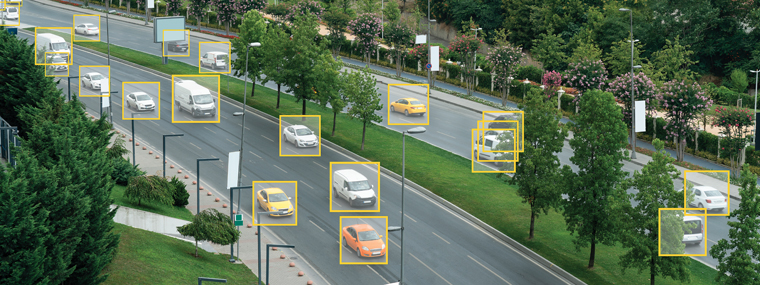
Enhancing Your Community’s Security Program in the Post-COVID Labor Market
By Alon Alexander / Published June 2023

As the world recovers from the global pandemic, various industries have experienced significant changes, and the security sector is no exception. Condominiums and homeowners’ associations in Florida have faced unique challenges in ensuring the safety and security of their communities while managing increased labor costs and evolving technological advancements. Let’s explore how the post-COVID labor cost landscape has impacted condominium and HOA security programs and how technological innovations such as virtual guarding, roving robots, smart cameras, and AI have become more accessible, enhancing security measures for these communities.
The COVID-19 pandemic has brought about unprecedented changes in the labor market, with labor costs significantly increasing in many sectors, including security. Condominiums and HOAs in Florida, which rely heavily on security personnel for guarding entrances, patrolling common areas, and monitoring surveillance cameras, have felt the impact of these rising labor costs. Many communities have also faced insurance increases and budget constraints, making it challenging to maintain an adequate security program due to increased labor expenses.
To overcome these challenges, condominium and HOA communities have turned to technological advancements in security measures. Virtual guarding has emerged as a cost-effective solution that leverages technology to remotely monitor and protect properties. With virtual guarding, trained security personnel use live video feeds and two-way audio communication to monitor multiple properties simultaneously from a central command center. This allows for more efficient and cost-effective surveillance of condominiums and HOAs, reducing the need for on-site security personnel and mitigating labor cost challenges.
Furthermore, advancements in robotics and automation have paved the way for roving robots to enhance security in condominiums and HOAs. These robots are equipped with sophisticated sensors, cameras, and AI capabilities that allow them to patrol designated areas, detect and respond to unusual activities, and send real-time alerts to security personnel. These robots can operate 24/7, providing round-the-clock surveillance without the need for breaks or vacations, making them an effective solution for addressing labor cost challenges in security.
Another technological advancement that has improved condominium and HOA security is the use of smart cameras with AI capabilities. These cameras can analyze video footage in real time, automatically detecting and alerting security personnel to potential security threats, such as intruders, suspicious behavior, or unauthorized access. These smart cameras can also integrate with other security systems, such as access control and alarm systems, creating a comprehensive security ecosystem for condominiums and HOAs.
In addition to virtual guarding, roving robots, and smart cameras, technology has also enabled the use of AI in enhancing security measures for condominiums and HOAs in Florida. AI algorithms can analyze large amounts of data, such as video feeds, access logs, and sensor data, to identify patterns and anomalies that may indicate security risks. This can help predict potential security breaches and allow for proactive responses, reducing the reliance on manual monitoring and improving overall security effectiveness.
Moreover, the COVID-19 pandemic has accelerated the acceptance and adoption of technology in various aspects of our lives, including security measures. As the workplace has shifted to remote work and virtual meetings have become the norm, communities have become more open to embracing virtual guard robots and other technological advancements as part of their security program. The convenience, cost effectiveness, and efficiency of these technologies have gained widespread recognition and acceptance, making them viable solutions for enhancing condominium and HOA security in the post-COVID era.
However, it’s important to note that while technology has significantly improved condominium and HOA security, it should not replace the human element entirely. Human security personnel still play a critical role in ensuring the safety and security of communities. They can provide a personal touch, handle complex situations, and respond to emergencies in real time.
Alon Alexander
President, Kent Services
Alon Alexander is the current president of Kent Services. With over two decades of experience in the industry, Alon has established himself as a respected leader in the field of security and risk management. Throughout his career Alon has demonstrated a strong commitment to his clients, striving to provide them with the highest level of service and expertise. He has a proven track record of developing and implementing effective security strategies that have helped businesses of all sizes to protect their assets, employees, and customers. Alon is also actively involved in his community, serving as a mentor to young professionals and volunteering his time and resources to various charitable organizations. Alon’s dedication to his work and his community has earned him a reputation as a leader in both fields. For more information, call 1-800-273-KENT (5368) or www.kentservices.com.




